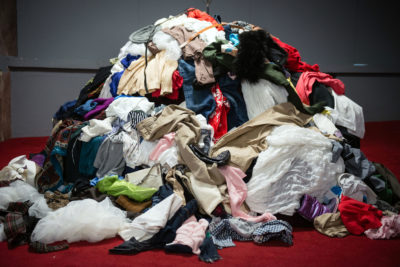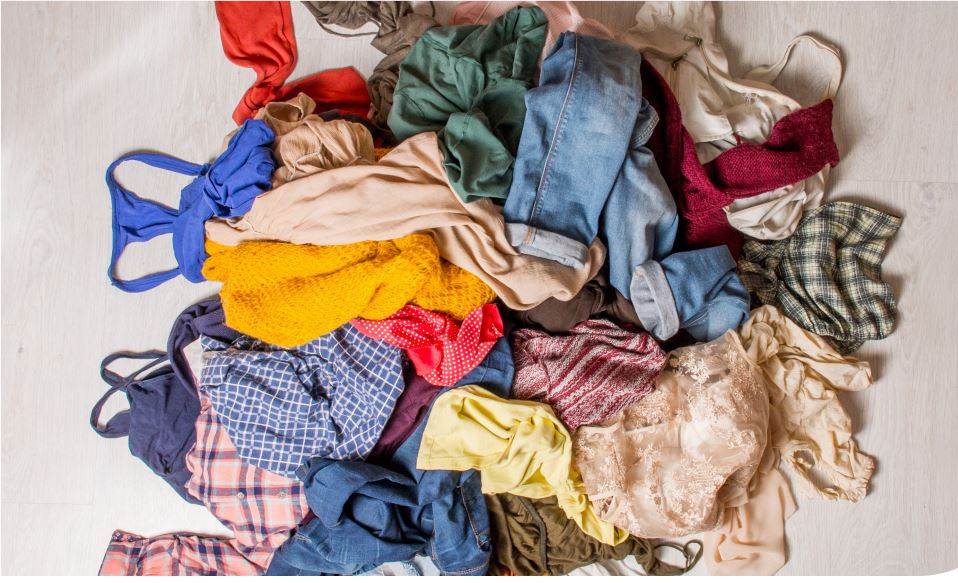However, the alliance has been criticised by some other textile recyclers, who have claimed that its support for UK-based sorting infers that all textiles sent overseas for sorting will not be dealt with correctly.
SortUK was set up by the UK's three largest textile sorters – Stirlingshire-based Nathan's Wastesavers, East London's Lawrence M Barry and West Midlands-based JMP Wilcox – to lobby councils, business and the government about the advantages of sorting textiles domestically.
Brendan O'Brien, director of Nathan's Wastesavers explained that “there's very few people left sorting in the UK so we have come together to try to promote keeping the business here”.
Accountability
In particular, he explained that the organisation was looking to emphasise the benefits councils and businesses could get in terms of accountability by sorting in the UK, and said: “The money side is sorted – they get paid – and they can see what happens to it.”
His sentiments were echoed by Ross Barry, manager of Lawrence M Barry, who said: “If you ship it abroad all you are doing is shipping your waste and passing your responsibility to someone else.”
And, Alan Arrowsmith, of JMP Wilcox added that: “You sell to 'man with van' and he sells into Poland and he turns around and says there's no market for it then what's going to happen it? It's going to end up in landfill.”
Taking issue with many local authorities' deciding to take textiles to charities for recycling, Mr Barry said: “The thing I don't understand with councils is so many of them just give them straight to charities.
“There's not a single charity in the UK that's here just to make clothing affordable here or elsewhere,” he added, claiming that there was currently “absolutely no transparency” about where recovered textiles eventually ended up when they were put in banks or left with shops.
Progress
Commenting on the alliance's progress to date, Mr O'Brien explained that “we've been busy lobbying councils”, and added that “it's a good message and everybody seems to be listening”.
And, he said that a particular priority for the organisation was to get councils to include a requirement for textiles to be sorted in the UK when they were tendering for waste contracts.
His sentiments were echoed by Mr Barry who said that both councils and waste management companies had been “very positive” about the group's aims.
And, he was also optimistic about getting government support for the organisation, claiming that “Defra have made noises saying they want to preserve a certain amount of sorting in this country”
Mr Arrowsmith added that, when SortUK was “absolutely sure with what we're doing and what we're saying”, it planned to encourage government to look at the impact that the France's producer responsibility levy for textiles, which was introduced last year, had had on the industry.
TRA
Responding to concerns over whether SortUK would be competing with the long-established Textile Recycling Association to represent the textile recycling sector, Mr O'Brien stressed that the TRA was a “broad church” and that there was the potential in the future for SortUK to operate as a sorting arm within it.
And, Mr Barry added that: “The TRA does a very good job at doing that thing so we don't want push them out, we think they have got the right message, they represent charities, merchants etc.”
Criticism
However, the SortUK organisation has faced criticism from some in the textile recycling sector, with one recycler claiming that the alliance was being “slightly unfair”.
“They are saying they employ people legally and all that kind of thing but by inference does that mean we don't?” he said.
“Every world-wide business has decided it's too expensive to be in this country, why should textile sorting be the one industry that bucks the trend?” he added, claiming that the main priority for the textile recycling sector should be tighter policing of door-to-door collections to prevent theft and collections by unlicensed companies.
And, the usefulness of the alliance was questioned by another textile recycler, who claimed that “they're only really advertising what we're already doing”.












Subscribe for free